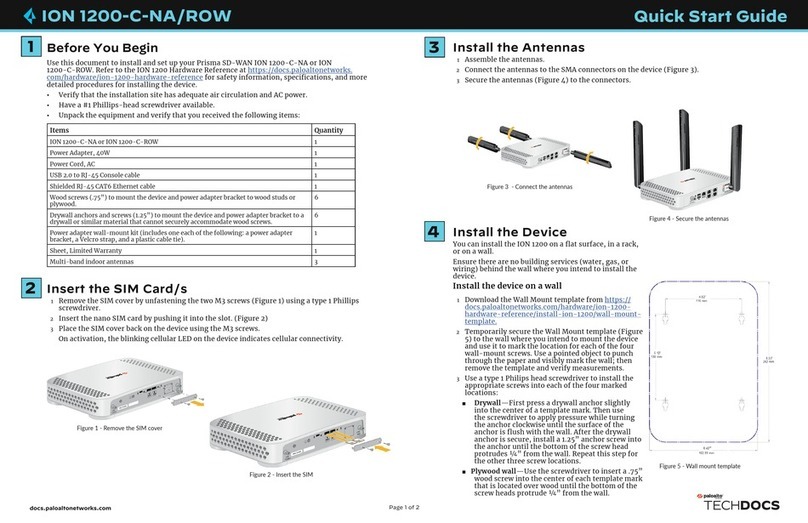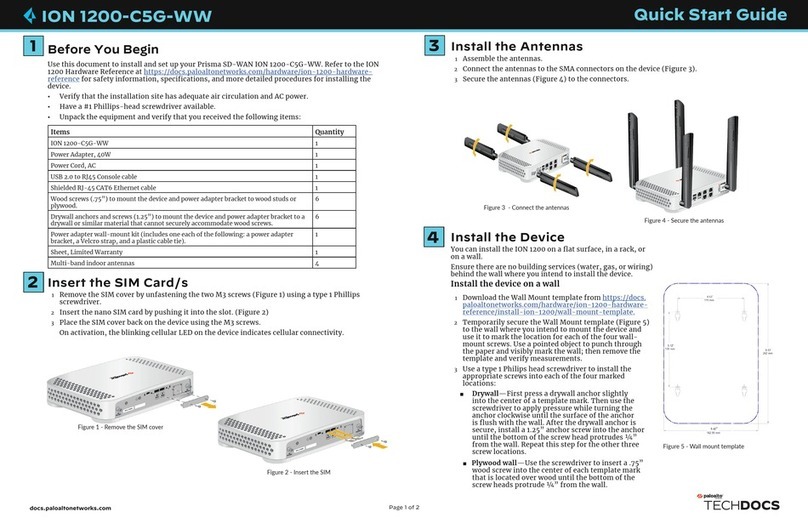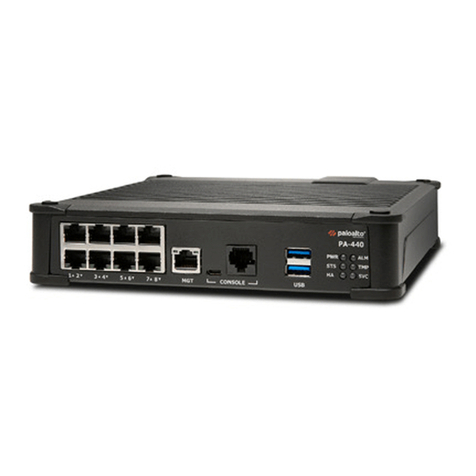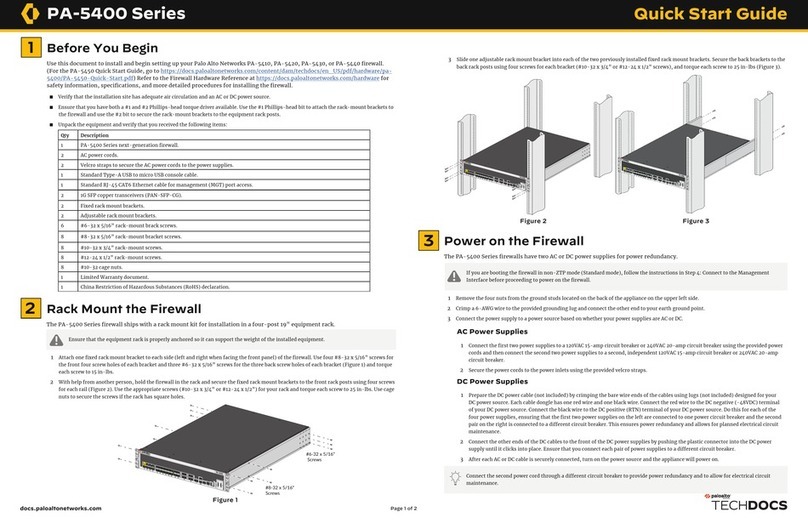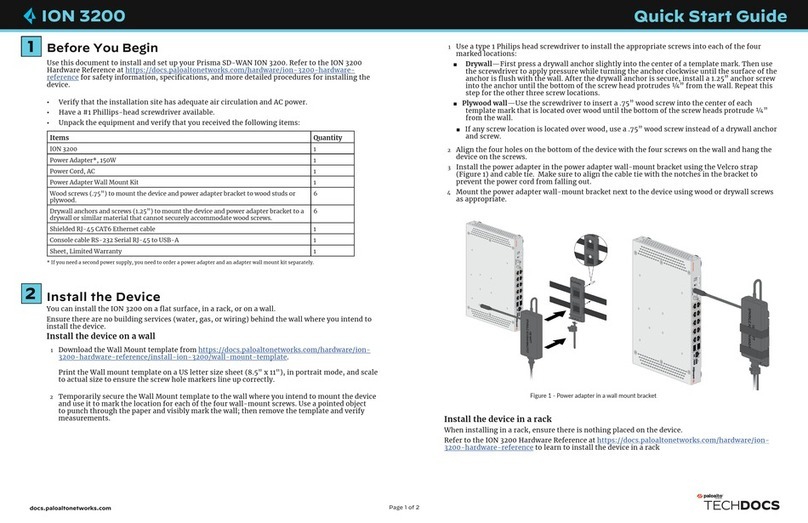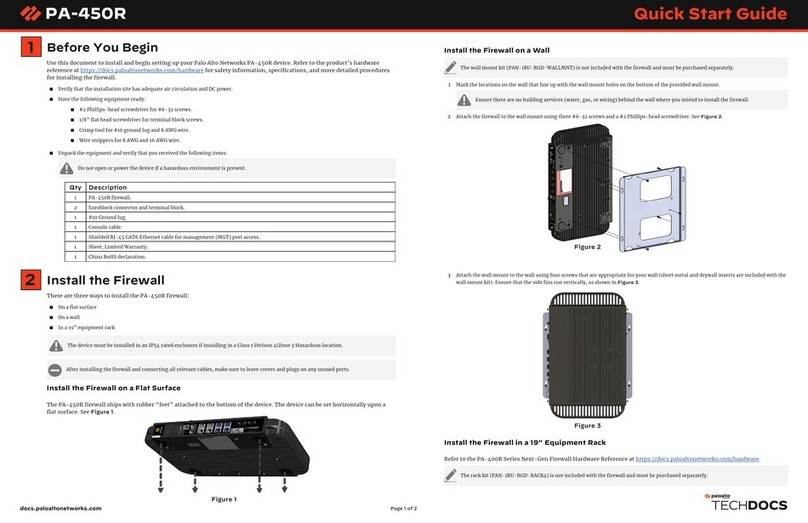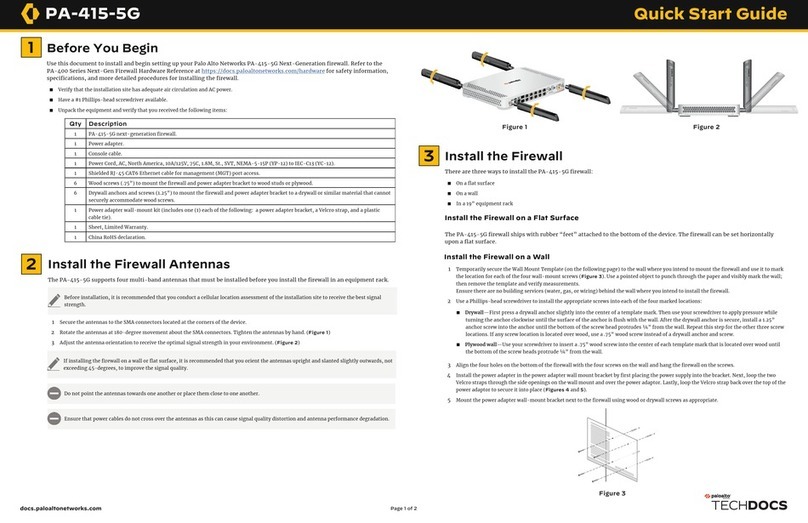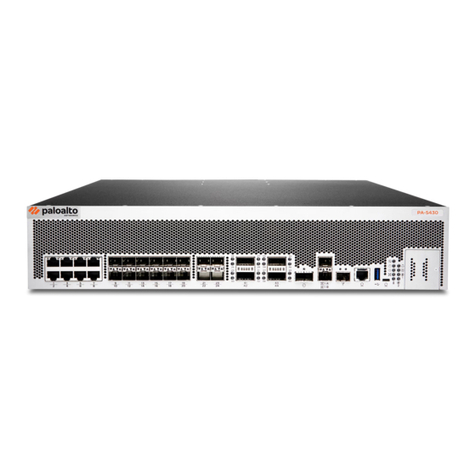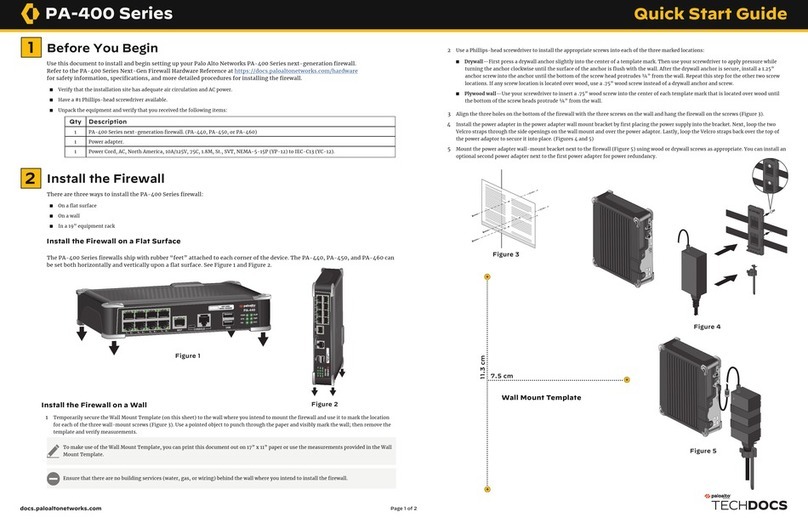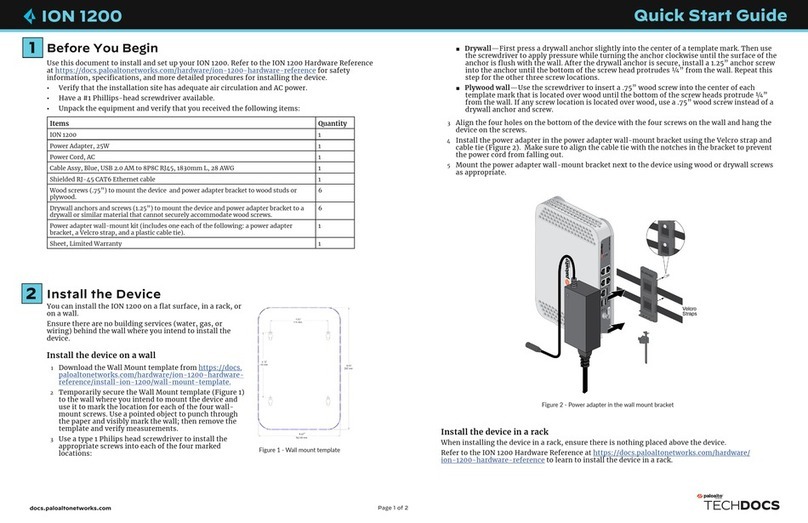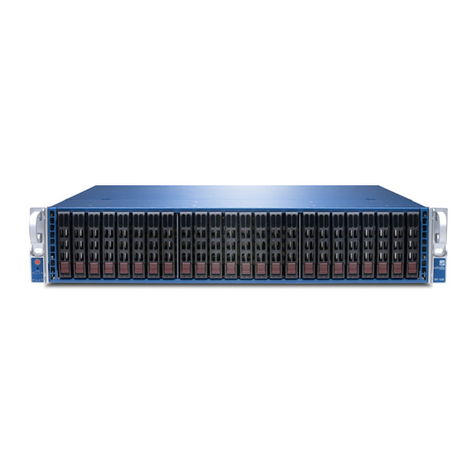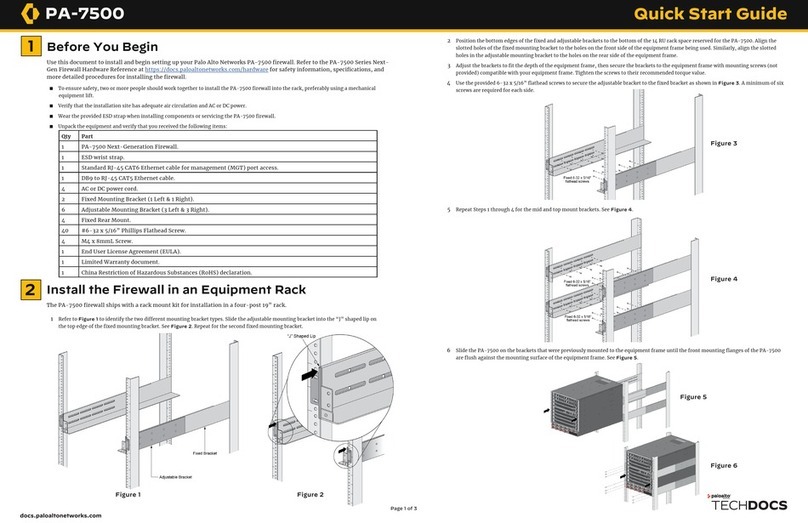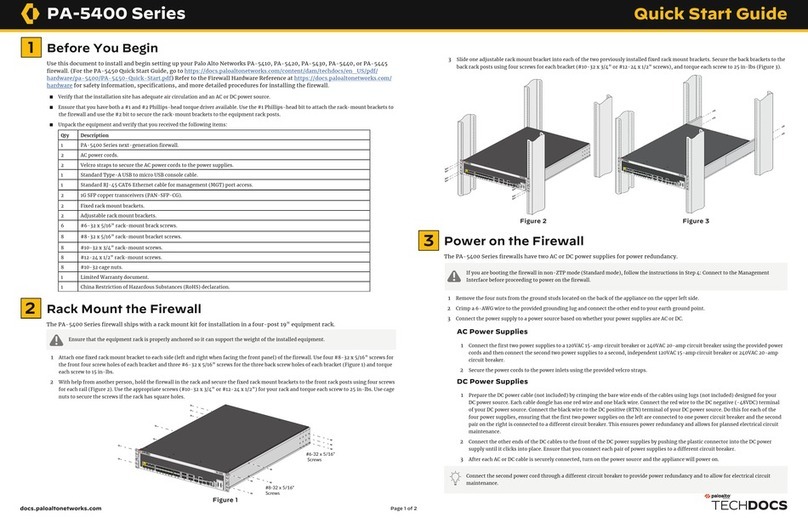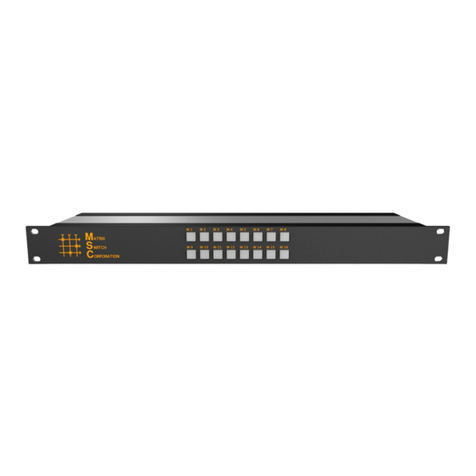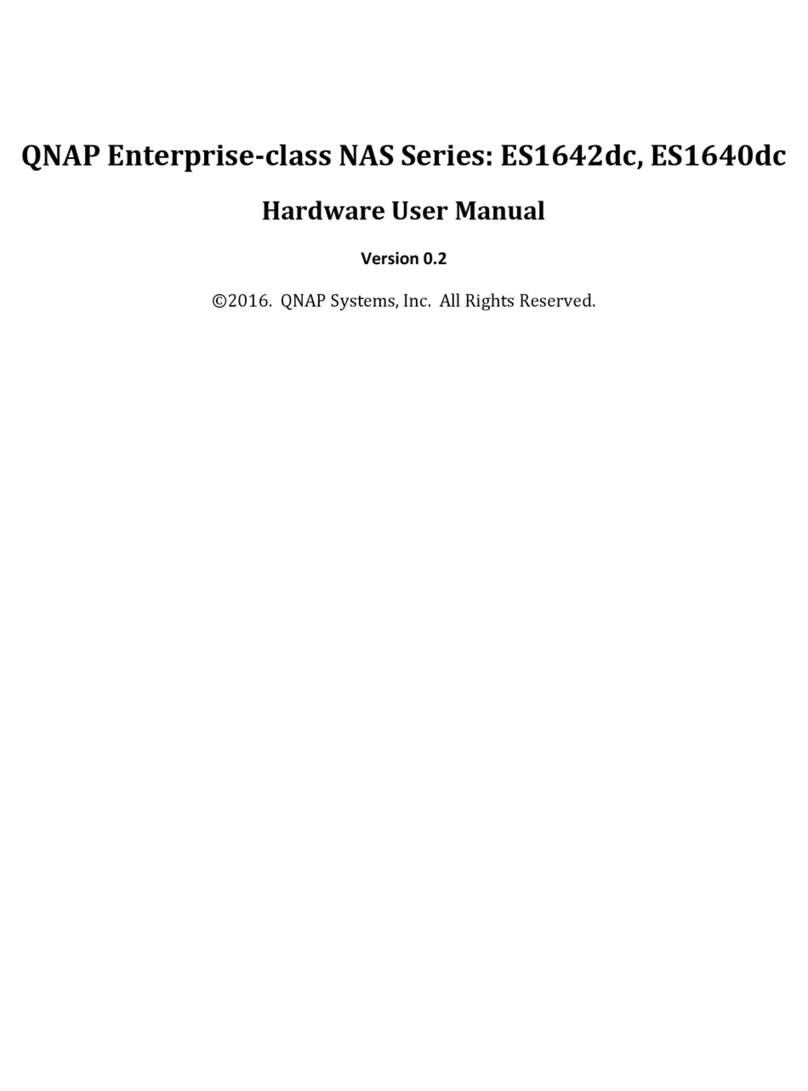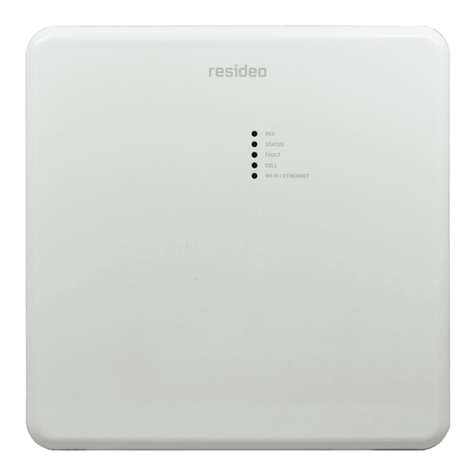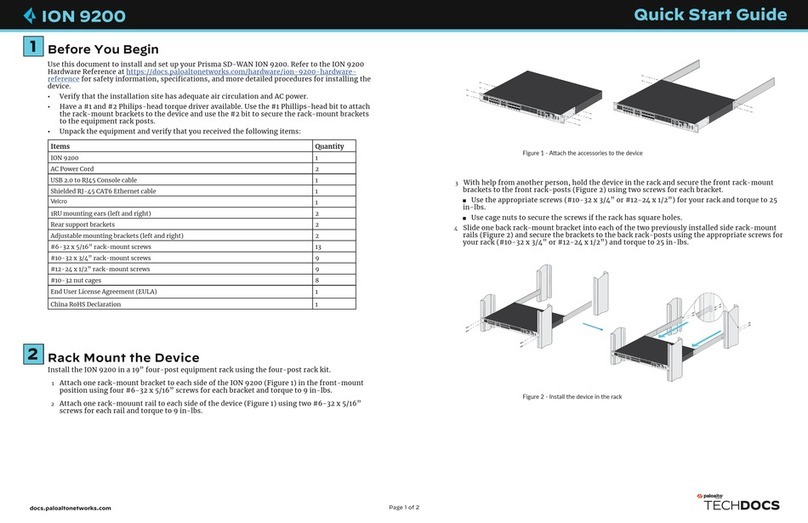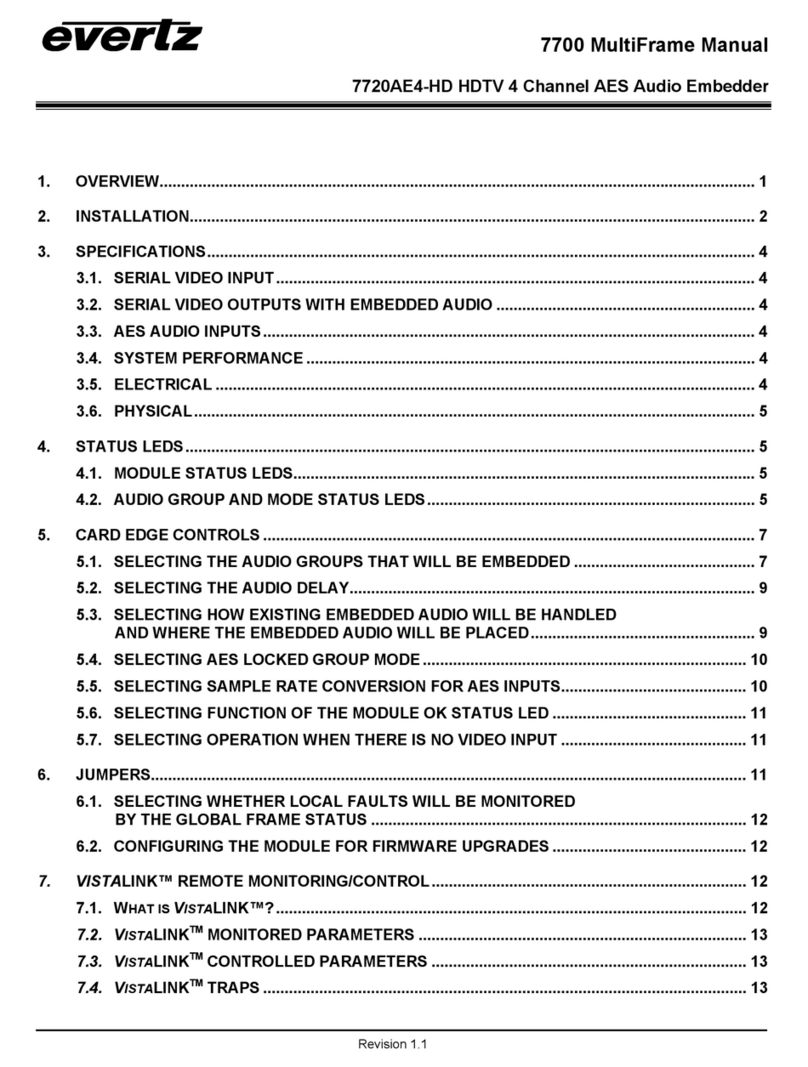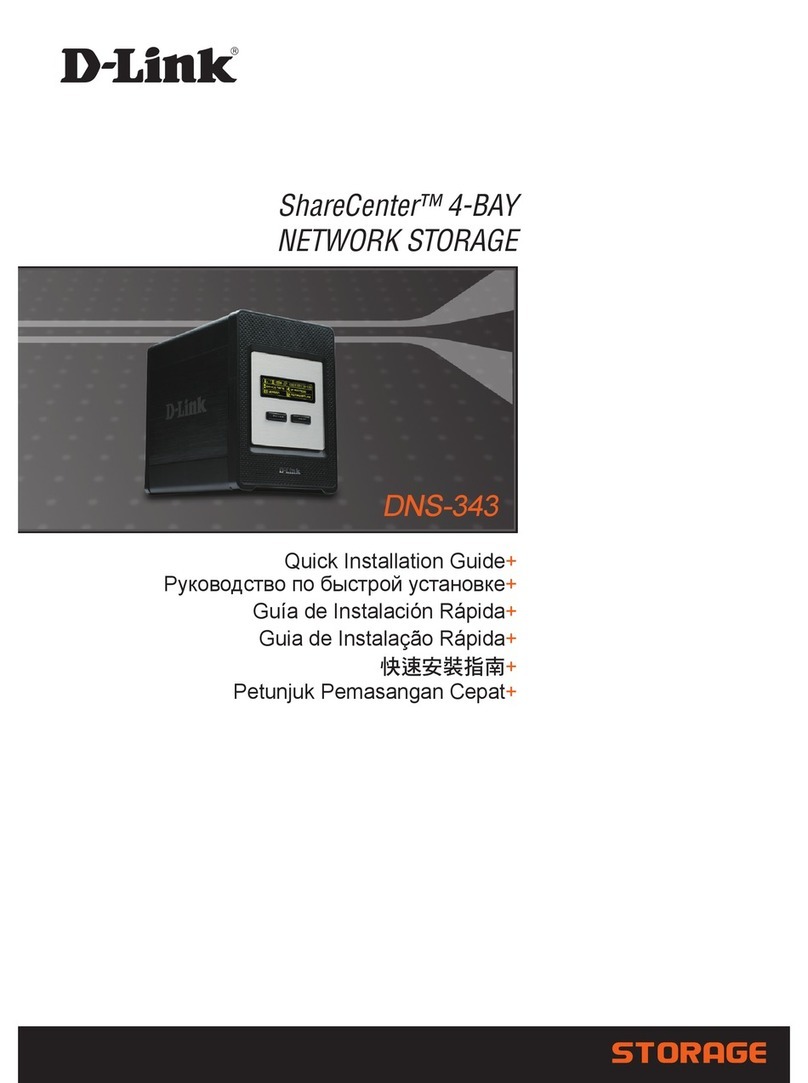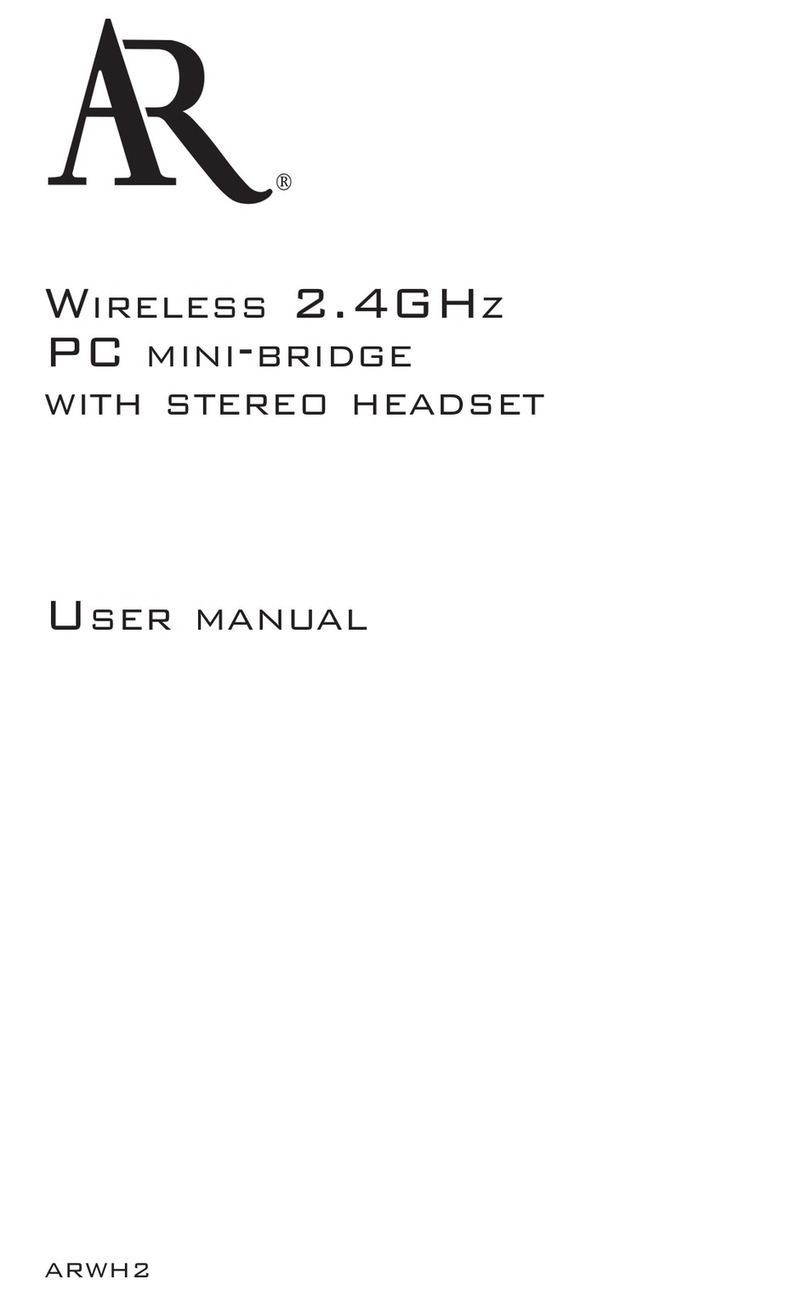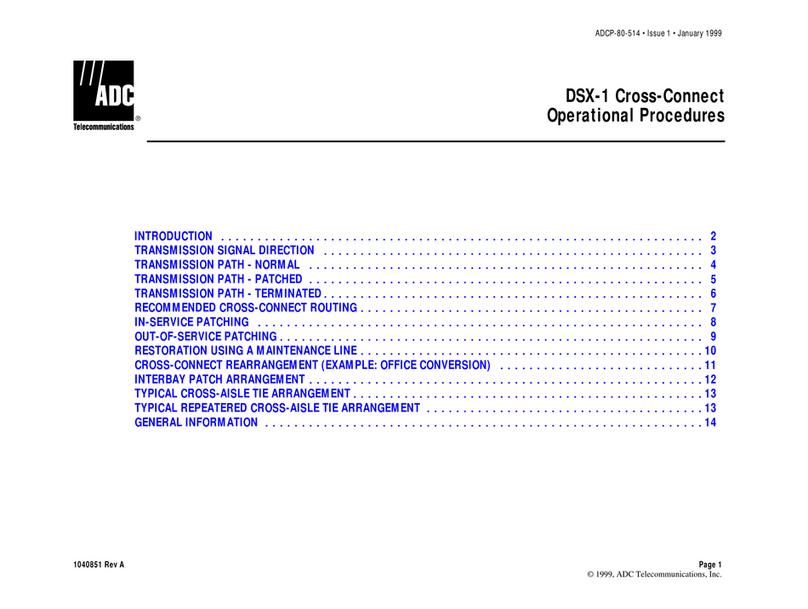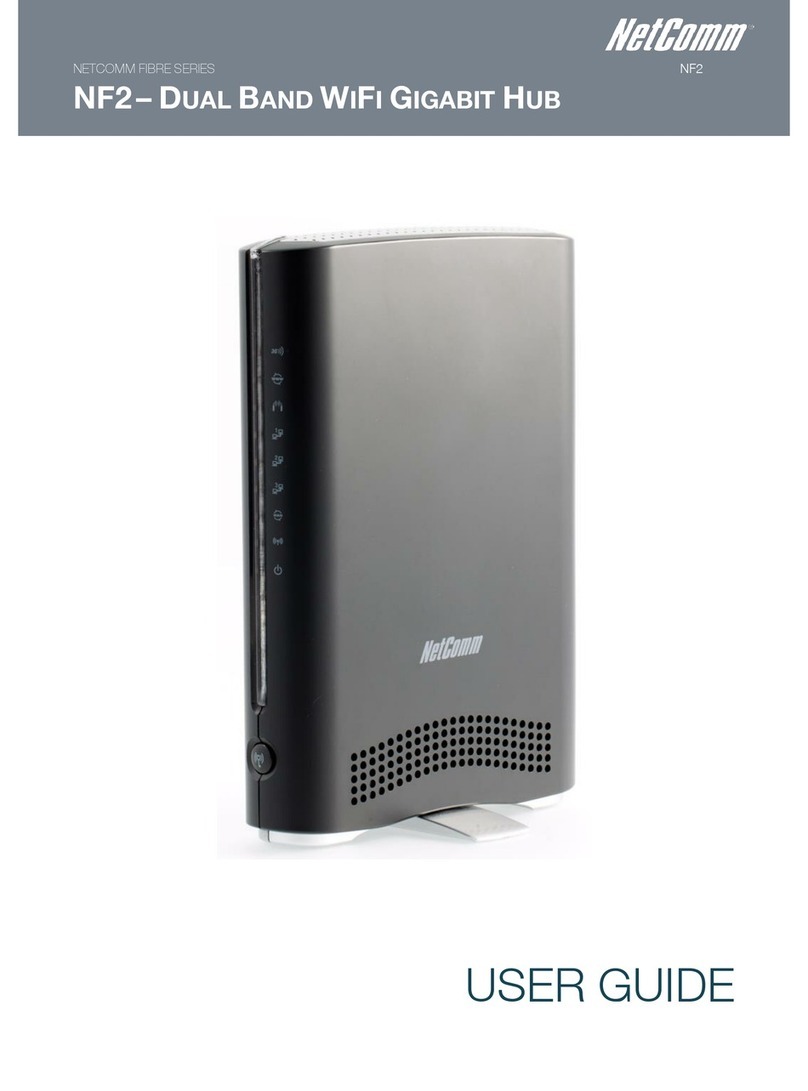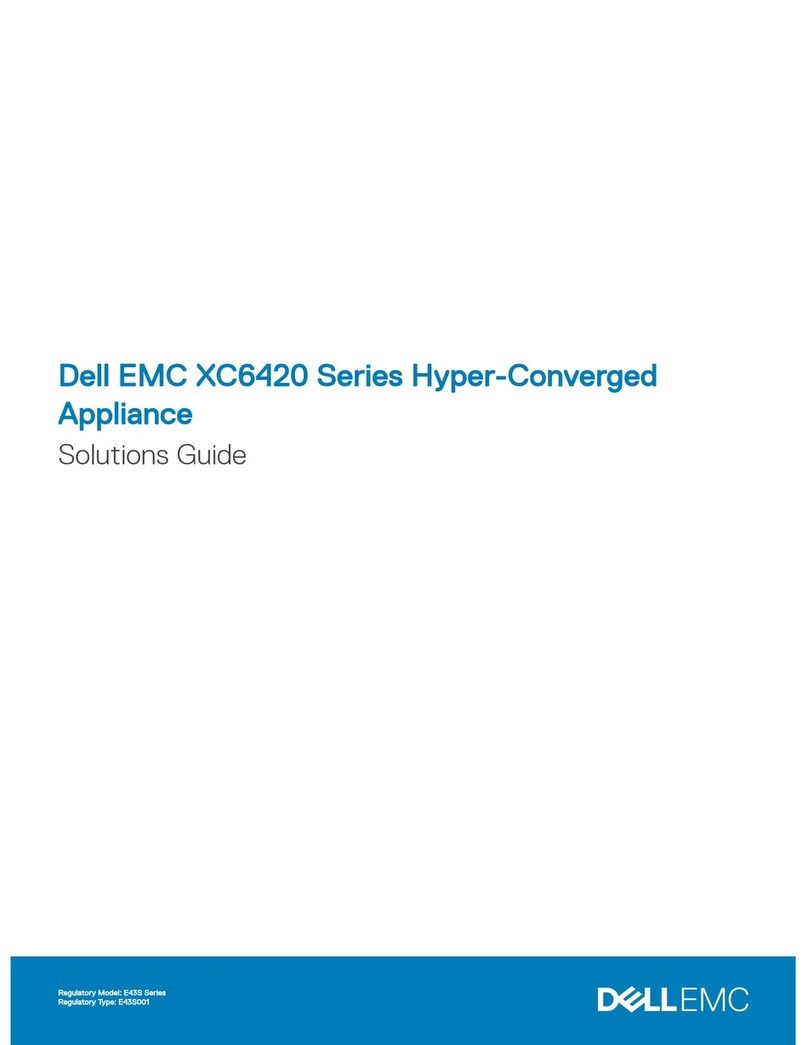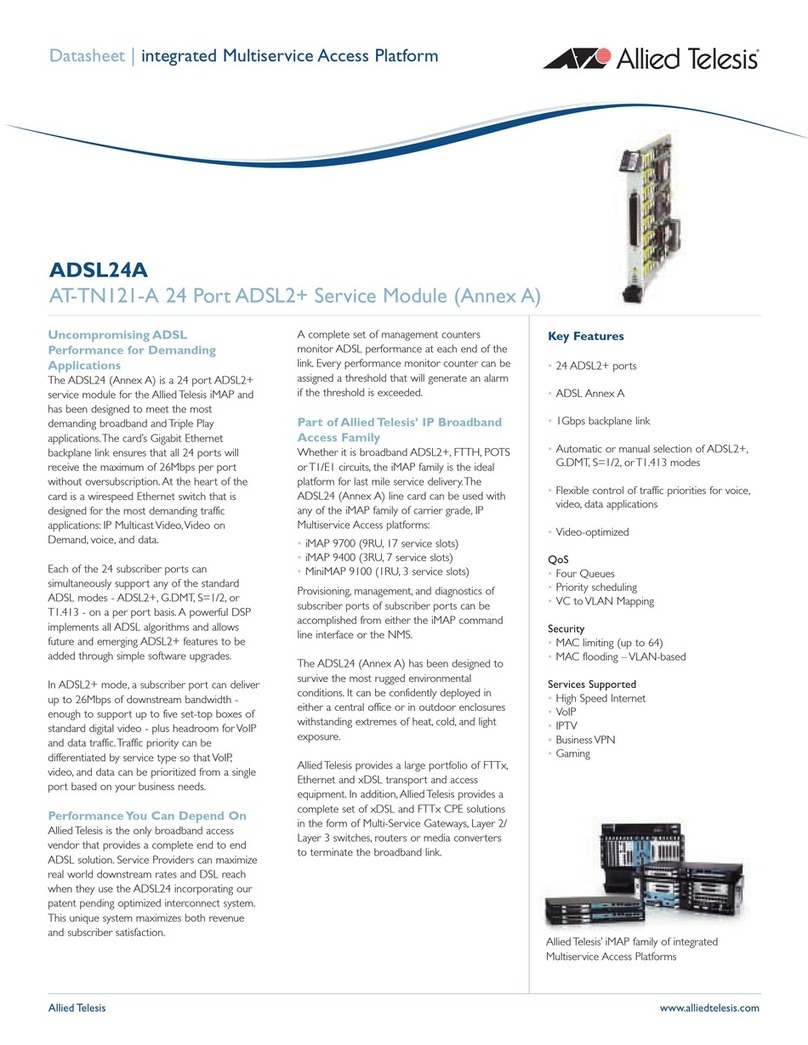
PA-455
docs.paloaltonetworks.com
1Before You Begin
Use this document to install and begin setting up your Palo Alto Networks PA-455 Next-Generation firewall. Refer to the PA-
400 Series Next-Gen Firewall Hardware Reference at https://docs.paloaltonetworks.com/hardware for safety information,
specifications, and more detailed procedures for installing the firewall.
◼Verify that the installation site has adequate air circulation and AC power.
◼Have a #1 Phillips-head screwdriver available.
◼Unpack the equipment and verify that you received the following items:
Page 1 of 4
Quick Start Guide
Qty Description
1PA-455 next-generation firewall.
1Power adapter.
1Console cable.
1Power Cord, AC, North America, 10A/125V, 75C, 1.8M, St., SVT, NEMA-5-15P (YP-12) to IEC-C13 (YC-12).
1Shielded RJ-45 CAT6 Ethernet cable for management (MGT) port access.
6Wood screws (.75”) to mount the firewall and power adapter bracket to wood studs or plywood.
6Drywall anchors and screws (1.25”) to mount the firewall and power adapter bracket to a drywall or similar material that cannot
securely accommodate wood screws.
1Power adapter wall-mount kit (includes one (1) each of the following: a power adapter bracket, a Velcro strap, and a plastic
cable tie).
1Sheet, Limited Warranty.
1China RoHS declaration.
Install the Firewall
There are three ways to install the PA-455 firewall:
◼On a flat surface
◼On a wall
◼In a 19” equipment rack
Install the Firewall on a Flat Surface
The PA-455 firewall ships with rubber “feet” attached to the bottom of the device. The firewall can be set horizontally upon a
flat surface. (Figure 1)
2
Figure 1
Install the Firewall on a Wall
1 Temporarily secure the Wall Mount Template (on the following page) to the wall where you intend to mount the firewall and use it to mark the
location for each of the four wall-mount screws (Figure 2). Use a pointed object to punch through the paper and visibly mark the wall; then remove
the template and verify measurements. Ensure there are no building services (water, gas, or wiring) behind the wall where you intend to install the
firewall.
2 Attach the firewall to the wall mount using three #6-32 screws. (Figures 3 and 4)
3 Atach the wall mount to the four marked holes in the wall using the appropriate screws for your wall type:
◼Drywall—First press a drywall anchor slightly into the center of a template mark. Then use your screwdriver to apply pressure while turning the
anchor clockwise until the surface of the anchor is flush with the wall. After the drywall anchor is secure, install a 1.25” anchor screw into the
anchor until the bottom of the screw head protrudes ¼” from the wall. Repeat this step for the other three screw locations. If any screw location is
located over wood, use a .75” wood screw instead of a drywall anchor and screw.
◼Plywood wall—Use your screwdriver to insert a .75” wood screw into the center of each template mark that is located over wood until the bottom of
the screw heads protrude ¼” from the wall.
4 Install the power adapter in the power adapter wall-mount bracket using the Velcro straps and cable tie. Make sure to align the cable tie with the
notches in the bracket to prevent the power cord from falling out. Next, loop the two Velcro straps through the side openings on the wall mount and
over the power adapter. Lastly, loop the Velcro straps back over the top of the power adapter to secure it into place. (Figure 5)
5 Mount the power adapter wall-mount bracket next to the firewall using wood or drywall screws as appropriate. You can install an optional second
power adapter next to the first power adapter for power redundancy.
Figure 4
Figure 3
Figure 2
Figure 5
